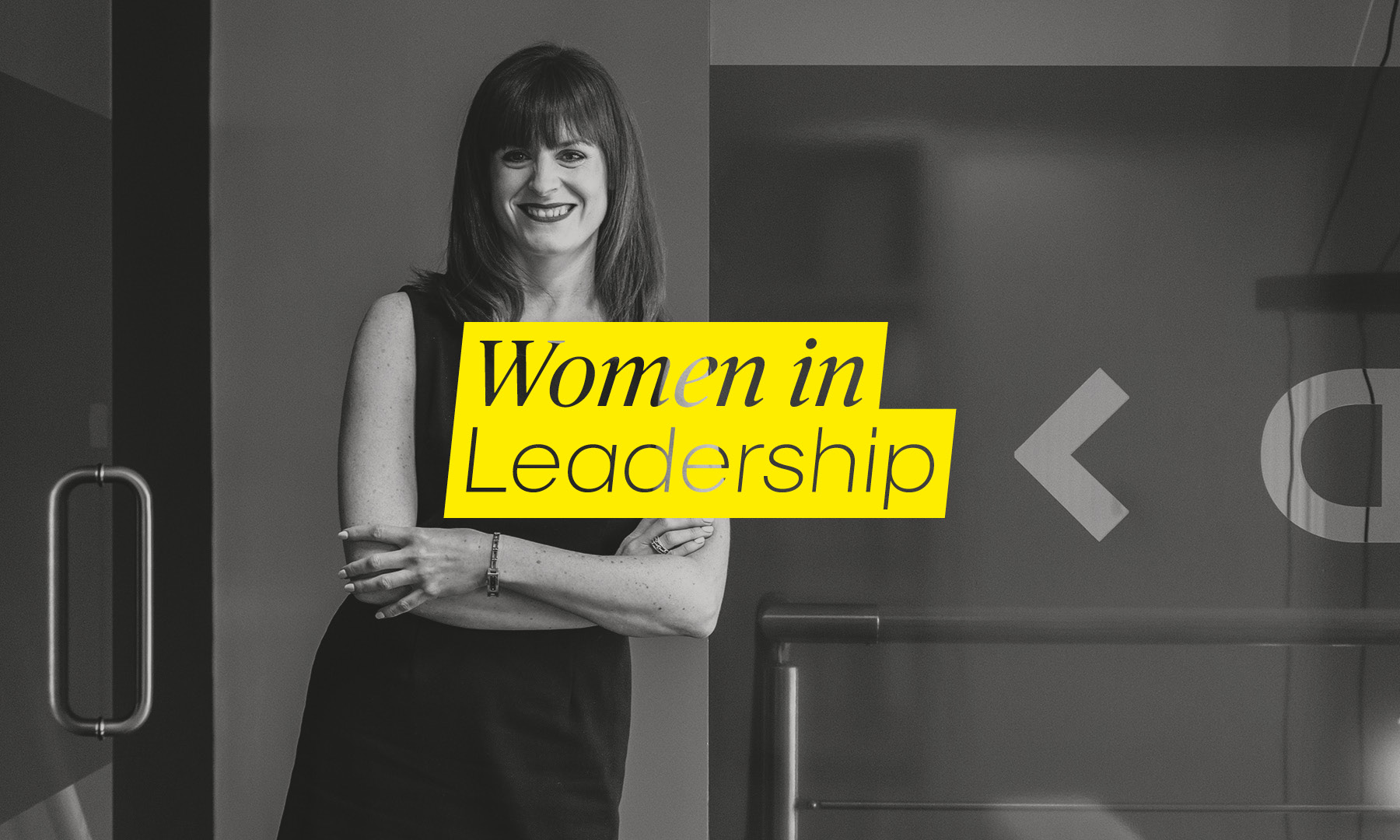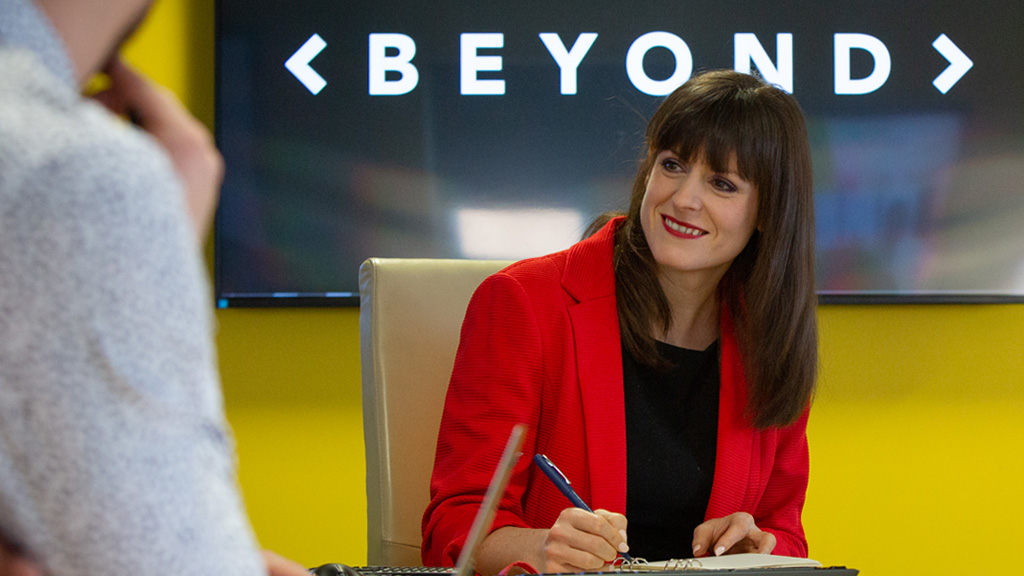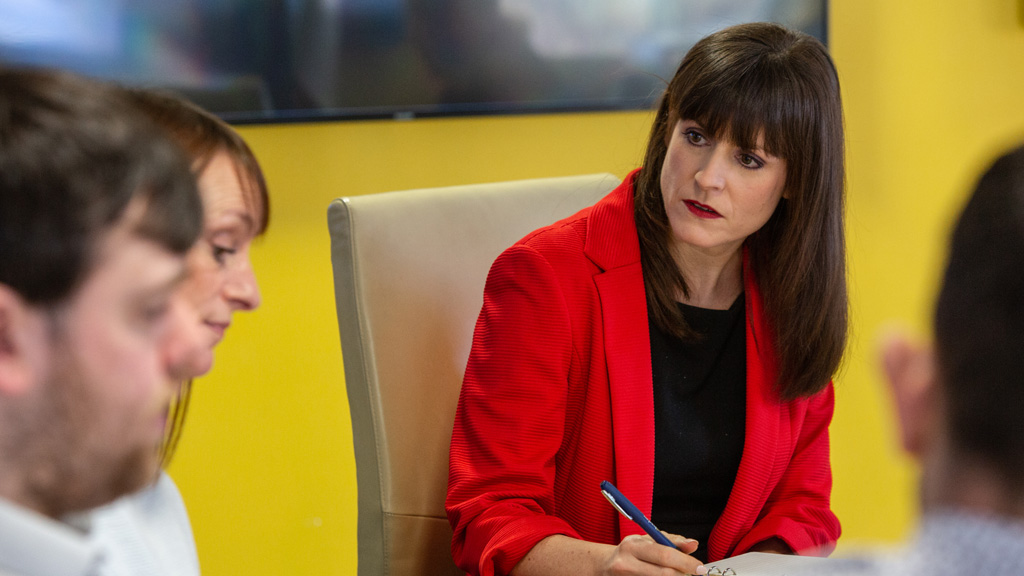Tuesday 08 March 2022
Insights

“So I left university in 1999 after studying history, and I genuinely didn’t have a clue what I wanted to do, but I’d always followed what I enjoyed, and that’s why I’d done history, but I didn’t want to be a history teacher.
I’ve always been very good at organising things, and getting things ordered, and I’m very good at getting people behind me and leading things, I’d run a society when I was at university.
So I left and thought right, I don’t think I want to join a huge company, because I’d worked for BT when I was a student, and at this huge company, you just – I felt like I’d disappeared into the numbers.
So I was really attracted to joining a small business, and I found one down in Sunderland at the time, and it was a business which was focused on gathering information on people who were moving house, so that’s where I started my career, and I’ve always worked really hard – never been to prescriptive of what the next step is, and really enjoyed, learned as much as I could – I did a part time NBA over a couple of years, it was hard work doing studying and running a business at the same time, and that really drew other areas that I was enjoying very much.
So, as the years have gone on, we’ve worked with a number of business investors, and got involved – 12 years ago – with Beyond Digital Solutions, which I knew nothing about – didn’t understand technology, didn’t understand what it was that we were trying to do. But it was an exciting, new feel, and what I did was I threw myself into it, and really thought through the customer experience, because in business if you think about the customer at the centre of it, and what’s best for them, then you can find a way forward.
So here I am today, running Beyond Digital – As the MD – and I have a lovely team of people who work for me, and that’s how I’ve got to here!”

“I think it’s actually very important to have women in leadership, because it sets a precedent, and a role model for the younger generation coming through, and my generation were inspired by women who had really broken the glass ceilings – so, although there was still work to do with that, we had people who would really push through in a generation before.
So it’s not unusual to have women in leadership now, but there are still assumptions, certainly that I’ve come across, where people assume that it will be a man, and that depends on sector that you’re in, and I’m in the technology sector, so it’s probably more of an assumption that it would be a man. And certainly a lot of the businesses that I deal with – both different competitors and suppliers – a lot are men.
So I think women are there to be a role model, and I think that women also add a real balance in an organisation, women are generally – and I say generally – because it’s definitely not all, are more risk averse, which give a balance to a lot of men who – generally – are quite happy to go out there and take risks and spend a lot of cash. So you’ve got two different ways of running a business, you can invest a lot, and have a bit of a burn rate model – well – not necessarily losing a lot of money but going out there and taking a lot of risks, or you can go on a more organic growth pattern, and I think that women will – generally – bring a more organic, balanced approach to growing a business. Now that might be a slower way of doing it, but you could also argue it’s a way to do it more sustainably, and to really bring in the team and invest in people on the way.
I’m not a fan of putting women into positions of leadership, just because they’re a woman – to make up a quota or make up a number – they have to be there because of their own skills, their own proven track record in achievement, and they have to be there to lead people as well and be very good leaders, and we do have a log of good women who do that.
So I do think it’s important that women do take that role very seriously and think about the generation that’s coming through.”

“So, in terms of marketing, what I always say to everybody, regardless of who you are is, how do you help to serve the customer, and add value for the customer within the business, so whether or not its marketing, or you’re in sales, or you’re in operations, the customer is at the heart of the business, and you’re doing the right thing for them.
So in terms of marketing, thinking about what fresh ideas there are out there, how you can bring that – not just within the business – but what’s happening, what are the market trends out there, how can we bring that to the centre of the business. Think about that customer experience and how that can be improved.
So I think you need to stay fresh and creative and looking out there for inspiration all the time, and it could be general political trends, or it could be economic, or social trends – it could be anything that helped to bring, and enhance that customer experience.
I think you’ve also got to think very seriously about how the role of marketing can enhance what the product is – or what the solution is, in our case – and looking out to the market, and whether or not that’s customers, its competitors, its suppliers, whatever other stakeholders there are out there, what they think as a first impression of the business, and I think that’s key to the marketing function.”
The second part of our interview with Louise can be found here, or the full video can be seen on our YouTube channel.